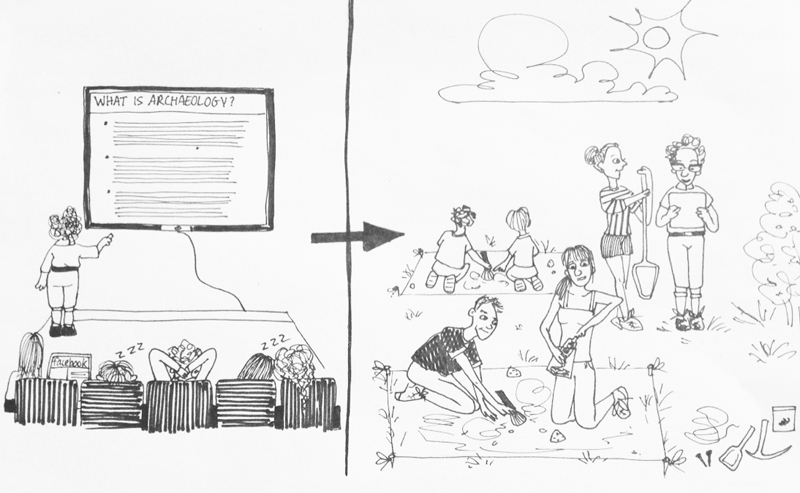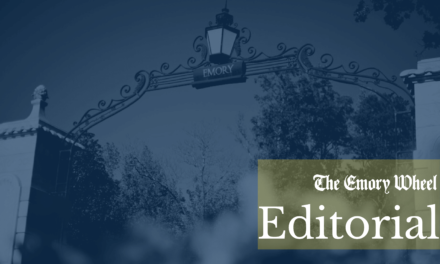We believe that Emory strives to be a “destination university” and it needs to celebrate those things that set it apart from other universities and give it an distinct identity.
One such asset is the university’s deep commitment to the city of Atlanta. In fact, Emory is a national leader in civically engaged scholarship, whether through its work in public health, social enterprise, community building, theology, educational policy or in other fields.
And through civic engagement courses and programs such as the Community Building and Social Change Fellowship, Emory is graduating generations of future change agents.
Despite having many of these civic engagement resources already in place, Emory does not adequately inform students, prospective students and faculty of engaged learning possibilities.
We think it is time that Emory College have an engaged learning tag. By neglecting to identify engaged learning courses, the Office of the Registrar is ignoring a key part of Emory’s educational identity as a place where students can learn what it means to affect social change.
Over the past few years, we have been working as the Committee on Civic Engagement to understand the state of service at Emory. Repeatedly we have run into the complaint that service and academics are not integrated.
According to Emory’s Center for Community Partnerships, there were 54 classes last fall that had engaged learning components, yet we have found that students were not aware of these courses. Either they stumble upon them or they don’t.
We wanted to better quantify what we had been seeing on campus, so this November we conducted a survey and received 317 responses. In our analysis we found that 85 percent of students were interested in taking an engaged learning course, but only nine percent had actually taken one. What accounts for this disconnect?
The problem in one of communication. Emory’s Oxford College has a Theory-Practice-Service-Learning Program which directs students to engaged learning courses. These courses have a tag which allows students to easily identify them.
Oxford isn’t alone in tagging courses; engaged learning or service tags appear in the course atlases at Princeton, Harvard, Yale, Stanford, Duke and the University of Pennsylvania.
Frankly, this course tag seems overdue. It is an easy way for us to recognize the transformative engaged learning courses we are already offering.
The Center for Community Partnerships already keeps a list of these courses each semester, and 88 percent of our survey respondents agreed that a tag would be useful. We believe a tag on OPUS and in the course catalog would increase the visibility of courses Emory already has and highlight how much the Emory community values service.
Blake Mayes is a College senior from Knoxville, Tenn.
Laurabeth Goldsmith is a College senior from Sarasota, Fla.
Rachel Cawkwell is a College senior Westchester, New York.
Illustration by Priyanka Pai
The Emory Wheel was founded in 1919 and is currently the only independent, student-run newspaper of Emory University. The Wheel publishes weekly on Wednesdays during the academic year, except during University holidays and scheduled publication intermissions.
The Wheel is financially and editorially independent from the University. All of its content is generated by the Wheel’s more than 100 student staff members and contributing writers, and its printing costs are covered by profits from self-generated advertising sales.







If you would like to sign the student petition to help make this Engaged Learning Tag a reality please visit:
http://chn.ge/1c4hnXA
naturally like your web-site but you need to check the spelling on several of your posts. Many of them are rife with spelling problems and I in finding it very bothersome to inform the truth nevertheless I will certainly come back again.
Thank you for another informative site. Where else may just I am getting that type of information written in such a perfect approach? I have a venture that I’m just now running on, and I have been at the look out for such information.
You really make it seem really easy with your presentation but I to find this matter to be really something which I feel I might never understand. It kind of feels too complex and extremely wide for me. I’m taking a look ahead in your subsequent submit, I’ll attempt to get the dangle of it!